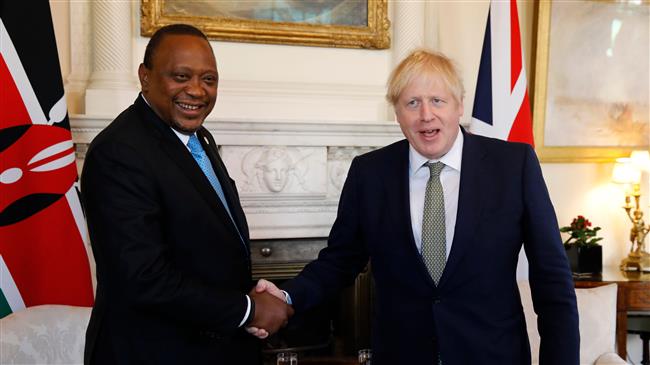A landmark global education summit is set to take place in the UK in mid-2021. To be co-host by UK and Kenya, the summit would urge world leaders to invest in getting children into school and build back better from coronavirus. The summit will raise funds for the Global Partnership for Education.
Coronavirus has worsened the global education crisis, with 1.3 billion children – including 650 million girls – out of education at the peak of school closures.
In Ghana, school closures saw 9.2 million children temporarily out of school. Two million children across the country have returned to secondary school over the past few months, and KG and primary children are also expected to go back to school in January 2021. However, in Ghana and across the world experts warn that because of the prolonged period of school closure, many children may never return to school.
Missing out on education does long-term damage to individuals and communities, with girls particularly at risk. The benefits of schooling are transformative and multi-generational – a child whose mother can read is 50% more likely to live past the age of five and twice as likely to attend school themselves. However, globally adolescent girls and young women are three times more likely than young men to be out of school or work.
Since 2015, the UK has supported 15.6 million children, including 8 million girls, to gain a decent education. Last year alone, the UK invested £788 million directly in supporting global education. Now, the UK and Kenya will come together in 2021 to host a summit to lead global action on education.
Iain Walker British High Commissioner to Ghana said: “At the height of this pandemic more than 9 million children across Ghana, and more than 11 million children across the UK couldn’t attend school because of much-needed lockdown measures.
Now, as the world builds back better in the wake of COVID-19, we must re-focus our global efforts to make sure that every child receives a quality education at home or at school. It is right that the UK and Kenya will come together to host this global education summit next year, and I look forward to seeing Ghana among the key decision-makers attending this event.”
As well as promoting education for all, the summit aims to raise US$5 billion for the Global Partnership for Education (GPE), to help fund education in lower-income countries from 2021-2025. Since its creation in 2002, GPE has contributed to getting 160 million more children in school and doubling girls’ enrollment in the countries they work in.
This funding will help ensure that 175 million children can learn in 87 lower-income countries, including Ghana. In the future, this investment could add US$164 billion to economies, lift 18 million people out of poverty, and protect two million girls from early marriage.
Alice Albright, GPE CEO said: “GPE’s refinancing comes at a critical time. Confronted with growing inequality made worse by COVID-19, we need to shift gears and transform education systems if we want to deliver quality education for every girl and boy well into the future.
“We’re launching our most ambitious and urgent campaign yet, calling on world leaders to raise their hands and fund education. By refinancing GPE, leaders can send a clear message that the world is serious about creating a brighter future through education. We must seize this opportunity to make sure that no child is left behind – in Ghana or any other country in the world.”
The transformative benefits of education will be central to the summit. With domestic financing and additional support from UK aid, GPE, the World Bank and others, over the last 20 years Ghana has:
- achieved universal primary education across the country
- attained gender parity at every level
- made secondary education free to all
- supported out-of-school children to learn and transition to formal school
The UK-Ghana partnership has been central to this transformation. Since 2010, UK support to Ghana has helped more than 750,000 boys and girls to attend primary and secondary school, and over 2,500 Ghanaians to study in UK universities, gain degrees and develop their professional skills.
However, despite making great strides across the sector, the 2020 World Bank Human Capital Index indicates that although children are expected to attend school for 12 years in Ghana, they currently leave with the equivalent of only 6 years of learning. The UK is supporting Ghana to take forward its Education Strategic Plan 2018-2030, COVID-19 Education Response Plan and key reforms to improve inclusive and equitable access, teaching and learning for all girls and boys in the country.
Dr. Matthew Opoku Prempeh, Ghana’s Minister of Education said: “An educated population is a country’s most valuable resource for nation-building. In Ghana, we have pursued several reforms aimed at ensuring learning outcomes improve. GPE and the UK have been key partners in helping us invest in solutions to get all our children learning, and it has been an exciting journey so far.
We must use the GPE summit to make ambitious pledges to invest in quality education so our children and young people have the skills and knowledge to seize the opportunities of the 21st century. The challenges of the COVID-19 pandemic have taught us to be more innovative in the tools we employ to deliver teaching and learning, and this is one of the critical areas we are interested in.”
GPE is the only global partnership and fund dedicated to helping children in lower-income countries to get a quality education. The GPE replenishment summit will take place in the UK in mid-2021, and will convene key global players and decision-makers, with the aim of getting all children into school and learning.










